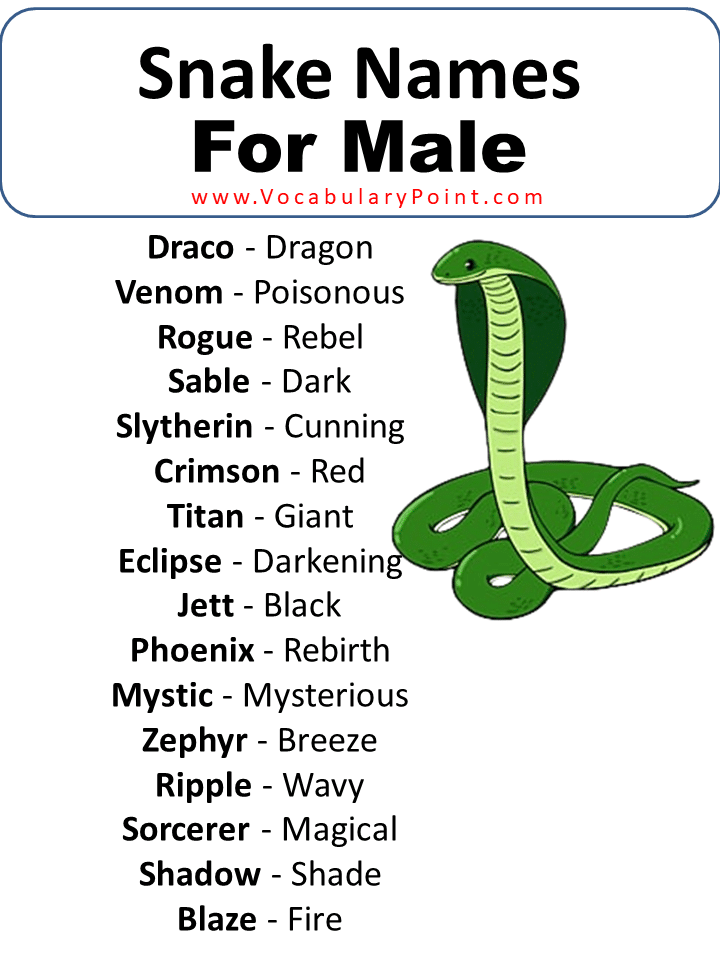Ever wondered about the allure of Greek snake names? Well, buckle up, because we're diving deep into the world where mythology meets the slithering wonders of the ancient Greeks. From the sacred to the symbolic, Greek snake names carry a weight of history, culture, and mysticism that's hard to ignore. So, if you're here to uncover the secrets behind these legendary monikers, you're in the right place, my friend.
Snakes have always held a special place in Greek mythology and culture, often symbolizing transformation, healing, and wisdom. The Greeks revered these creatures, often weaving them into stories of gods, heroes, and legendary beings. Greek snake names are more than just words; they’re gateways to a world where the divine and the natural intertwine.
In this article, we'll explore the fascinating origins of Greek snake names, their cultural significance, and how they continue to inspire modern naming conventions. Whether you're a mythology enthusiast or just someone who appreciates the beauty of ancient languages, this journey is sure to leave you spellbound.
Read also:Hottest Female Cartoon Characters Who Stole Your Heart
Table of Contents
- The Origins of Greek Snake Names
- Greek Snake Names in Mythology
- Symbolism Behind Greek Snake Names
- A Comprehensive List of Greek Snake Names
- Greek Snake Names in Modern Culture
- Greek Snakes in Biology
- Famous Namesakes of Greek Snake Names
- Etymology of Greek Snake Names
- Tips for Naming Pets with Greek Snake Names
- Conclusion: Why Greek Snake Names Matter
The Origins of Greek Snake Names
Let's kick things off by exploring where these names came from. Greek snake names didn't just pop out of thin air, you know. They're deeply rooted in the rich tapestry of Greek mythology and language. Back in the day, the Greeks had a thing for attributing meaning to everything, and snakes were no exception. These creatures were often seen as messengers between the mortal and divine worlds, which is why their names carried so much weight.
Take, for example, the name "Echidna." It’s not just a cool-sounding word; it's steeped in mythological significance. Echidna was a monstrous figure in Greek mythology, half-woman, half-serpent, and the mother of many legendary beasts. Her name, derived from the Greek word for "viper," encapsulates the duality and complexity of snakes in Greek culture.
Another fascinating aspect is how the Greeks used language to reflect the characteristics of snakes. Words like "ophis," meaning snake, and "drakon," meaning dragon, were used interchangeably in many texts, highlighting the blurred lines between snakes and mythical creatures in their worldview.
Language and Lore
Now, let's zoom in on the linguistic side of things. Greek, being an ancient language, has a way of capturing the essence of its subjects through its vocabulary. When it came to snakes, the Greeks didn't just stop at naming them; they crafted entire narratives around these creatures. Words like "herpeton," meaning creeping thing, were used to describe all manner of reptiles, including snakes. This broad categorization reflects the Greeks' holistic view of nature.
Moreover, the Greeks had a knack for turning snakes into symbols of power and wisdom. Names like "Hydra" and "Python" weren't just random labels; they were carefully chosen to reflect the creatures' roles in mythology. Hydra, for instance, symbolized regeneration and resilience, while Python was associated with prophecy and divine insight.
Greek Snake Names in Mythology
Alright, let's dive into the meat of the matter. Greek mythology is a treasure trove of snake-related stories, and the names associated with these tales are nothing short of legendary. From the famous battle between Apollo and Python to the tragic tale of Medusa, snakes played a crucial role in shaping the Greek mythological landscape.
Read also:Emmy Rossum Body Measurements The Inside Scoop Youve Been Waiting For
One of the most iconic figures in this context is Medusa, whose very name strikes fear into the hearts of many. Medusa, with her snake-like hair, was both feared and revered. Her name, derived from the Greek word "medein," meaning to guard or protect, underscores her role as a guardian of secrets and forbidden knowledge.
Then there's Python, the serpent guardian of the oracle at Delphi. Apollo's defeat of Python is one of the most celebrated myths in Greek lore, symbolizing the triumph of reason over chaos. The name "Python" itself carries a sense of mystery and power, making it a favorite among those seeking snake-inspired names.
Key Mythological Snake Names
- Echidna - Mother of monsters, half-woman, half-serpent
- Hydra - Multi-headed serpent, symbol of regeneration
- Python - Guardian of the Delphic oracle
- Medusa - Snake-haired Gorgon, protector of secrets
Symbolism Behind Greek Snake Names
Snakes in Greek culture weren't just creepy crawlies; they were loaded with symbolism. Greek snake names often reflected the cultural values and beliefs of the time. For instance, snakes were seen as symbols of healing and medicine, which is why the staff of Asclepius, the god of medicine, features a serpent coiled around it.
But it's not all about healing. Snakes also represented transformation and rebirth, thanks to their ability to shed their skin. This symbolism is evident in names like "Ophiotaurus," a mythical creature that combined the qualities of a bull and a serpent. The name itself means "serpent bull," highlighting the Greeks' fascination with hybrid creatures and their symbolic meanings.
Another interesting aspect is the association of snakes with prophecy and wisdom. Names like "Sibyl," derived from the Greek word for prophetess, reflect this connection. The Sibyls were legendary seers who delivered prophecies, often accompanied by serpents, reinforcing the idea of snakes as divine messengers.
A Comprehensive List of Greek Snake Names
Now, let's get to the good stuff. If you're looking for some inspiration, here's a list of Greek snake names that are both unique and meaningful:
- Ophis - Snake
- Drakon - Dragon
- Echidna - Mother of monsters
- Hydra - Multi-headed serpent
- Python - Oracle guardian
- Medusa - Snake-haired Gorgon
- Caduceus - Staff of Hermes, featuring intertwined serpents
- Ophiotaurus - Serpent bull
- Sibyl - Prophetess
- Amphisbaena - Two-headed serpent
Modern Variations
While these names have deep roots in ancient Greece, they've also found their way into modern naming conventions. For instance, "Ophis" has been adapted into "Ofis," a name that retains its original charm while feeling more contemporary. Similarly, "Drakon" has inspired names like "Draco," which gained popularity thanks to certain wizarding worlds.
These modern variations highlight the timeless appeal of Greek snake names, proving that their allure transcends generations.
Greek Snake Names in Modern Culture
Fast forward to today, and you'll find Greek snake names popping up in unexpected places. From literature to film, these names continue to captivate audiences worldwide. Take, for example, the character Draco Malfoy from the Harry Potter series. His name, derived from "Drakon," adds a layer of depth to his character, linking him to the ancient world of snakes and dragons.
Similarly, in the world of video games, Greek snake names are often used to create immersive mythological settings. Games like "God of War" and "Assassin's Creed Odyssey" feature characters and creatures with names inspired by Greek mythology, bringing these ancient stories to life for a new generation.
Cultural Impact
The influence of Greek snake names extends beyond entertainment. In the realm of science, many species of snakes are named after Greek mythological figures. The "Hydra" genus, for instance, pays homage to the legendary multi-headed serpent. This practice highlights the enduring legacy of Greek culture in the modern world.
Greek Snakes in Biology
When it comes to the natural world, Greek snake names aren't just confined to mythology. Many species of snakes found in Greece and the surrounding regions bear names that reflect their ancient heritage. The "Greek Tortoise," for example, is named after its native land, while the "Levant Adder" draws inspiration from the region's historical ties to ancient Greece.
Biologists often use Greek terminology to describe snake characteristics and behaviors. Terms like "ophidiophobia," the fear of snakes, and "ophiophobia," another term for the same fear, demonstrate the enduring influence of Greek language in scientific discourse.
Scientific Significance
Studying Greek snakes provides valuable insights into the biodiversity of the region. Species like the "Montpellier Snake" and the "Cat Snake" offer a glimpse into the rich tapestry of life that has thrived in Greece for millennia. By understanding these creatures and their names, we gain a deeper appreciation for the natural world and its connections to human culture.
Famous Namesakes of Greek Snake Names
Throughout history, Greek snake names have inspired countless individuals and organizations. From poets to scientists, these names have left an indelible mark on the world. For instance, the poet Sappho, whose name means "snake," used her work to explore themes of love and beauty, much like the serpents she was named after.
In the scientific community, figures like Ophiuchus, the serpent-bearer constellation, continue to inspire astronomers and stargazers alike. Named after a mythical healer who wielded a serpent, Ophiuchus serves as a reminder of the ancient Greeks' fascination with snakes and their symbolic power.
Historical Figures
Other notable namesakes include:
- Serpentarius - Another name for Ophiuchus
- Asclepius - God of medicine, often depicted with a serpent
- Amphisbaena - Mythical creature with two heads, inspiring modern scientific names
Etymology of Greek Snake Names
Understanding the etymology of Greek snake names adds another layer of depth to their significance. Many of these names are derived from ancient Greek words that describe the physical characteristics or behaviors of snakes. For example, "ophis" comes from the Greek word for snake, while "drakon" is related to the verb "to see," reflecting the idea of snakes as watchful guardians.
Other names, like "echidna," have more complex etymologies, drawing from multiple sources. The name "Echidna" is thought to be derived from the Greek word "ekhidna," meaning she-viper, highlighting the creature's dual nature as both woman and serpent.
Linguistic Evolution
Over time, these names have evolved, taking on new meanings and interpretations. Modern adaptations of Greek snake names often blend traditional elements with contemporary influences, creating a unique fusion of old and new. This linguistic evolution underscores the adaptability and resilience of language itself.
Tips for Naming Pets with Greek Snake Names
If you're thinking of naming your pet snake after a Greek mythological figure, here are a few tips to help you make the right choice:
- Consider the personality of your pet when choosing a name. Is it fierce like Hydra or wise like Python?
- Think about the symbolism behind the name. Does it align with your personal values or the story you want to tell?
- Make sure the name is easy to pronounce and remember. After all, you'll be saying it a lot!
Remember, naming your pet is a personal decision, and there's no right or wrong way to do it. Just have fun with it and let your creativity shine!
Conclusion: Why Greek Snake Names Matter
As we wrap up this journey through the world of Greek snake names, it's clear that these names hold a special place in both ancient and modern culture. From their mythological roots to their scientific significance, Greek snake names continue to inspire and captivate people around the globe.
So, whether you're naming your next pet snake or simply exploring the rich tapestry of Greek mythology, remember that these names are


